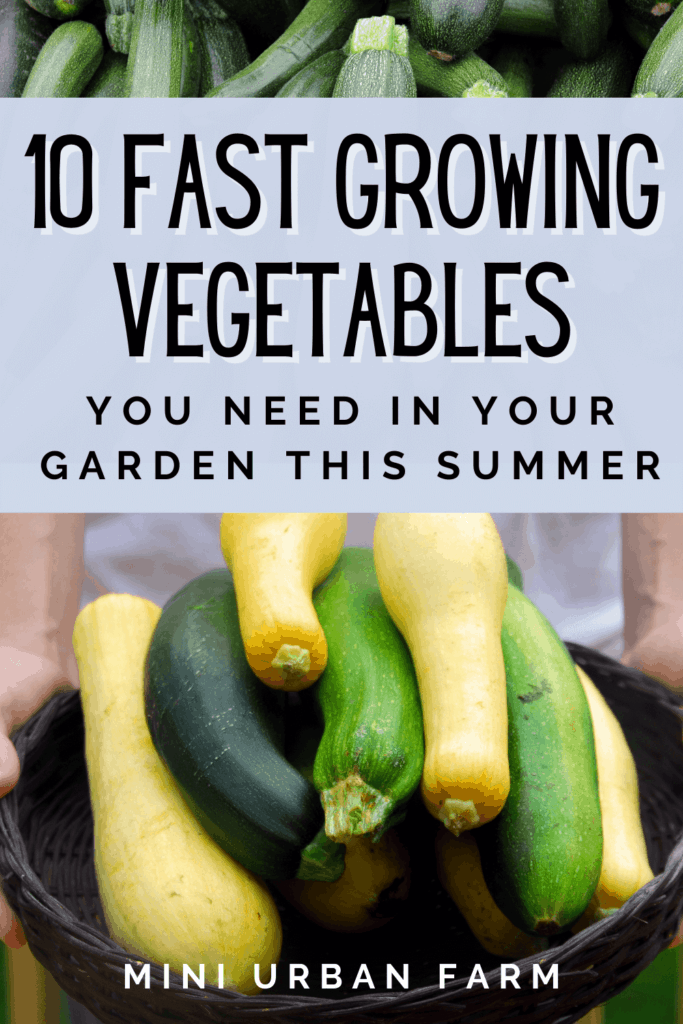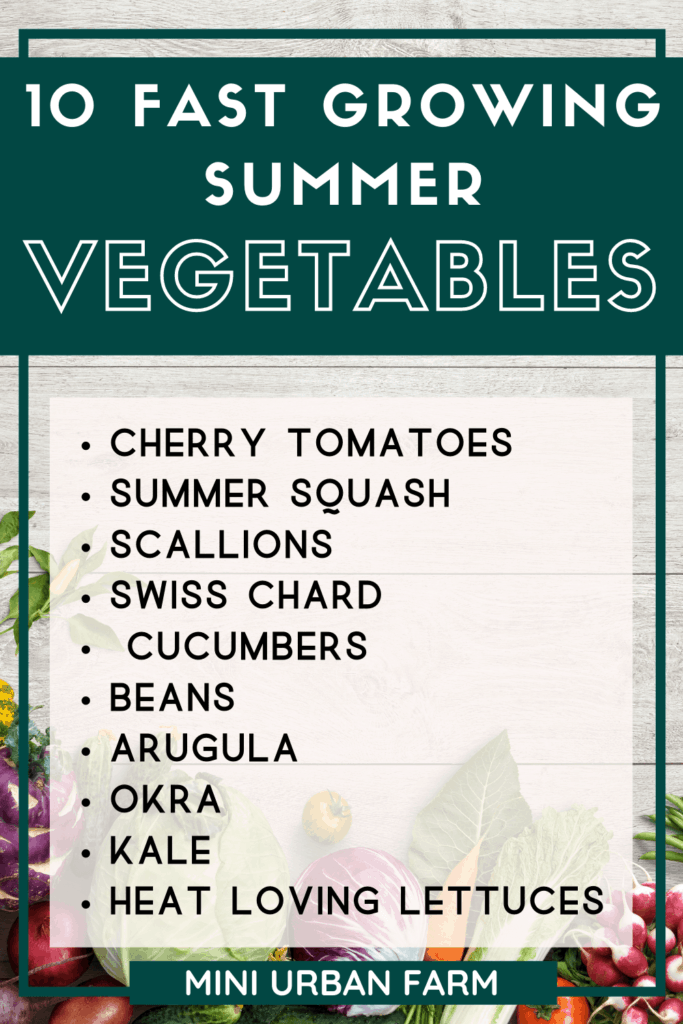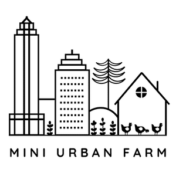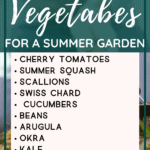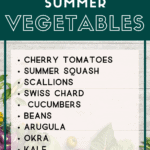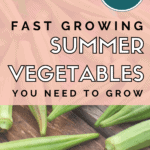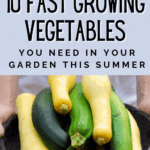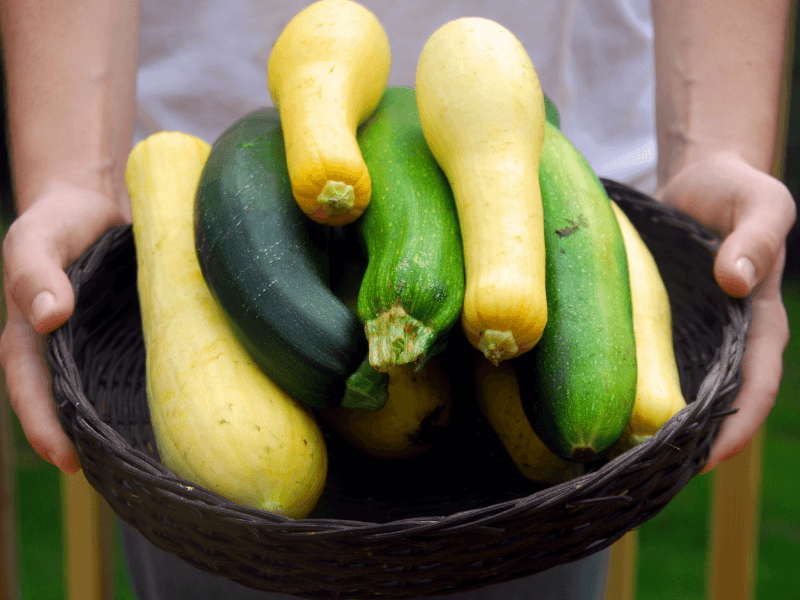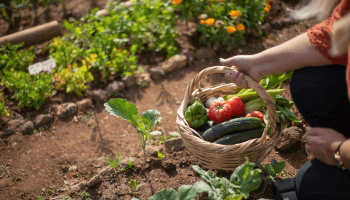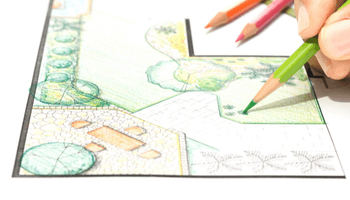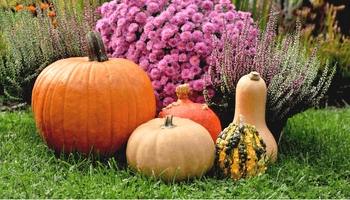In most places, summer gardening is a way of life! And after all the cold weather, the last thing you want to do is spend even more time waiting for your plants to grow so you can harvest some veggies! And speaking as a very impatient gardener, I feel you! So here are my best picks for fast growing summer vegetables – you’ll be in harvest mode before you know it!
Fast Growing Summer Vegetables:
- Cherry Tomatoes
- Summer Squash
- Scallions
- Swiss Chard
- Cucumbers
- Beans
- Arugula
- Okra
- Kale
- Heat Loving Lettuces
Disclosure: This post may contain affiliate links. If you purchase a product through one of our affiliate links we make a small commission from the sale at no extra cost to our readers.
1) Cherry Tomatoes
Nothing says summer like a nice tomato salad with vinaigrette dressing!
But if you’re looking to harvest some romas or beefstake tomatoes to kick off summer, you’ll probably be disappointed.
Smaller tomatoes, on the other hand, take way less time to mature – and in my experience, give a bigger harvest!
In fact, every year I grow multiple varieties of tomatoes – can you tell they’re my favorite thing to grow?
And my grape tomatoes always ripen way before any of the others!
For some smaller type tomatoes, plant some grape or cherry tomatoes.
You can use them for tomato confit, summer salads, or even some light cherry tomato sauce with roasted garlic!
And since tomatoes transplant very well, you can start them early indoors (or in the greenhouse) and set them outside with flowers already on them!
If you ask me, this should be on everyone’s summer grow list for a quick harvest!
2) Summer Squash
This season, my yellow squash and zucchini were the first plants I harvested – so naturally, they had to make the list!
And just in case you’re not familiar with summer squash – here’s a few pointers.
First off, make sure you have enough space – trust me on this one!
Just because that cute little seedling doesn’t look big enough to take up 6-10 square feet right now, it definitely is!
So give these plants the right amount of space if you expect to keep them alive.
Next, they don’t need nearly as much water as you may think!
Summer squash is a surprisingly drought-tolerant vegetable, which makes it one of my very favorite fast growing summer vegetables!
Most of my raised beds have some sort of drip line and a micro sprinkler head, too. But not my summer squash!
With only 1-2 drip line emitters per plant, my yellow squash and zucchini are both growing fast and constantly producing!
3) Scallions
Scallions (or green onions) might not be the first thing that comes to mind when you think about summer vegetables, but hear me out.
On my mini urban farm (which is really my backyard) I’ve grown scallions every season instead of planting onions.
They are a great replacement for urban gardeners because they can somewhat replace bulb onions, take very little space, and are one of the fastest growing summer vegetables!
Plus, if you’re really impatient like I am, you can skip the germination process and just buy organic scallions from the store!
They should come with their roots still attached which means you can plant them right in your garden and they keep growing for the whole season!
I promise I won’t tell anyone if you don’t!
4) Swiss Chard
Swiss chard is something I grow year round here in Central Florida, but it’s one of the few salad greens that will actually grow in the summer heat!
Plus it’s super drought tolerant which makes it great for a summer garden.
I usually only use the leaves for salad greens, but it can be sautéed also or blended into smoothies.
And you can start harvesting baby leaves as soon as they’re 4-6 inches tall for a more tender flavor!
But I will say that I’m not the only one who likes baby swiss chard. When planting this vegetable, watch out for caterpillars and cutworms which will leave your plants looking like a crochet doily instead of a plant!
Psst…want to fast track your garden? Get access to my FREE gardening resource library and start maximizing your garden today!
5) Cucumbers
Cucumbers are a must for a summer garden, so you’ll be happy to know that their time to maturity is only around 50-60 days!
As you probably already know, cucumbers come in both vining and bush varieties so you can grow them in any environment. But my favorite way to grow them is on a trellis!
Plus, cucumbers can be used for so many things.
From pickles, to summer salads, and even tzatziki sauce!
So add cucumbers to your summer grow list ASAP – you’ll thank me later!
6) Beans
Right now I have 5 different types of beans growing in my garden – both bush beans and pole beans!
So it’s pretty safe to say we like beans around here.
And being from a Cuban family, beans are a staple in our diet. Which means that it’s pretty awesome they grow fast!
Plant beans and you’re pretty much guaranteed to see them germinate within a week – and already have a few leaves on them too!
And shortly after that you’ll see some little white flowers, followed by tiny little beans!
Last season I planted out 32 pole bean plants – and I harvested a huge bowl of green beans about every 3 days for several months!
This season I planted about 150 bean plants – so I’m super excited (and a bit nervous) for harvesting time to come!
7) Arugula
If you think that arugula is only for fancy salads, think again!
I use arugula in so many recipes – in the morning for eggs, during the day for salads, and at night with garlic for stirfry!
Plus arugula is a fast growing vegetable that really only takes a month until harvest time!
So every season I sprinkle arugula seeds on top of the soil – no need to cover them – and within a few short weeks I have fully established plants!
And of course you can’t skip the fact that arugula is one of my favorite cut and come again vegetables, so you really can’t go wrong with this crop!
8) Okra
Okra is one of my favorite summer vegetables – mostly because my grandmother makes fried okra and quimbombo, or okra stew!
Thankfully, its time to maturity is only 55-60 days and then it produces for up to 3 months!
Okra is also a heat-loving vegetables, which means that if you live in a super hot climate like I do, there’s no need to worry!
Plus, okra produces large, beautiful flowers before it fruits – which in my book is a plus!
9) Kale
I have a love hate relationhip with kale.
On one hand, it’s such a nutritious vegetable and grows super fast – think 30 days time to harvest.
And on the other hand, it’s wildly overexaggerated in the “health foods” community.
I love using kale for salads – but kale chips? Not really my thing.
The upside to kale is that it pretty much grows anywhere – pots, raised beds, cracks in the sidewalk (yes, really!)
And just like arugula, since the seeds are so tiny, you can just sprinkle them on the soil surface without the need to cover them at all.
Give it 30 days and voila! Kale!
10) Heat Loving lettuces
Generally, lettuce is a cool season crop.
But there are a few heat loving lettuce varieties that can take the summer heat!
Combine that with the fact that lettuce is quick to germinate and is ready to harvest in under a month, and that makes it one of the best fast growing summer vegetables out there!
When you’re selecting lettuces to plant for the summer months, look for anything that says heat tolerant, or heat resistant.
And just in case, be sure to provide ample water!
Some of my favorite heat tolerant lettuce varieties are Coastal Star lettuce, Muir lettuce, and Cherokee lettuce!
Psst…want to fast track your garden? Get access to my FREE gardening resource library and start maximizing your garden today!
Summer Gardening Tips
Every gardening season has it’s own challenges, and summer gardening is no different!
And depending on the climate you live in, summers can be especially challenging because the average temperatures can reach over 90 degrees!
So below are my best summer gardening tips to make your summer vegetable garden the best you’ve ever had!
Proper Watering
During the summer it cam be a challenge to keep your vegetable plants hydrated, especially if they’re not drought-tolerant!
And the hotter it gets, the faster the soil will dry out – meaning you need to provide more water.
So keeping an eye out for dry soil and noticing any signs of heat stress in your plants will go a long way!
This will help you to adjust your watering schedule – whether you’re watering by hand or using drip irrigation!
And if you want to watch how I set up my drip irrigation system, you can check it out here!
Use Mulch
Using mulch is a great way to prevent your soil from drying out – or at least reduce the amount of evaporation!
And there are several different types of mulch you can choose from – pine shavings, straw, compost mulch, or even ground covers.
I personally prefer to use herbs as ground covers in between other plants since I am working with a small-ish garden. That way, I get more plants to cook with!
Plus, most herbs have pest-resistant properties that will keep pests away from your crops!
Shade Cloth
Not all summer crops are heat loving plants.
In these cases you can use shade cloth to protect your plants from the summer heat.
Shade cloth comes in different strengths – like 10% shade, 25% shade, for example.
So choose the one that you think your plants will benefit most from, and observe how they do after that!
Don’t Spray During the Day
When the sun is at it’s hottest, the worst thing you can do is spray neem oil or other pesticides onto the plants!
Doing so will burn your plants, just like if you were to put them in a skillet and cook them!
Unfortunately, many people don’t know this and they end up killing their plants – just by trying to help them.
So if you are going to spray anything onto your plants, wait until the sun has gone down and you’ll definitely dodge a bullet!
Should you water plants everyday in summer?
The amount you water your plants will depend on several factors – like how much water each plant needs, how much sun they are getting, and if they are planted in ground or in containers.
For example, plants growing in raised beds tend to need more watering. This is because the soil in raised beds dries out more quickly than in ground soil.
Another thing to consider is that different crops need more water than others.
Tomatoes can survive longer periods of time without water and prefer to be deep watered every few days. While leafy greens with shallower roots will need to be watered more consistently.
And if you’re plants are in direct sun all day long, that will likely need they more watering on a regular basis. Since the sun will dry out the soil faster than if they were in the shade!
When should I start a summer garden?
If you’re new to gardening then you might think that you need to wait until summer starts before you can plant you seeds for your summer garden.
This is definitly not true, though!
Many crops can be started indoors (or in a greenhouse) and be transplanted into the garden when the temperature warms up.
This is great because one, you don’t have to wait to start your seeds.
And two, by the time the weather is warmer you already have established plants to put in!
Usually I start my vegetable seeds 4-6 weeks before summer starts, but this will depend on what seeds you’re starting.
Generally the back of the seed packet will tell you how far in advance you can start your seeds – or if they need to be direct sown into the soil.
Overall, planting out these fast growing summer vegetables will help you get a head start on your summer garden and harvest veggies for longer! Plus, use these summer gardening tips to have the best summer vegetable garden yet!
I hope this was super helpful! And for more gardening resources, get access to our free gardening resource library! It will help you fast track your garden and it only takes 5 seconds!
Pin Fast Growing Vegetables for later!
